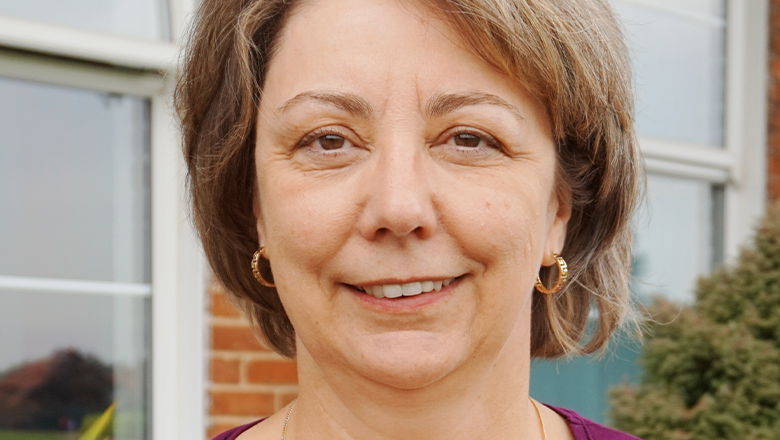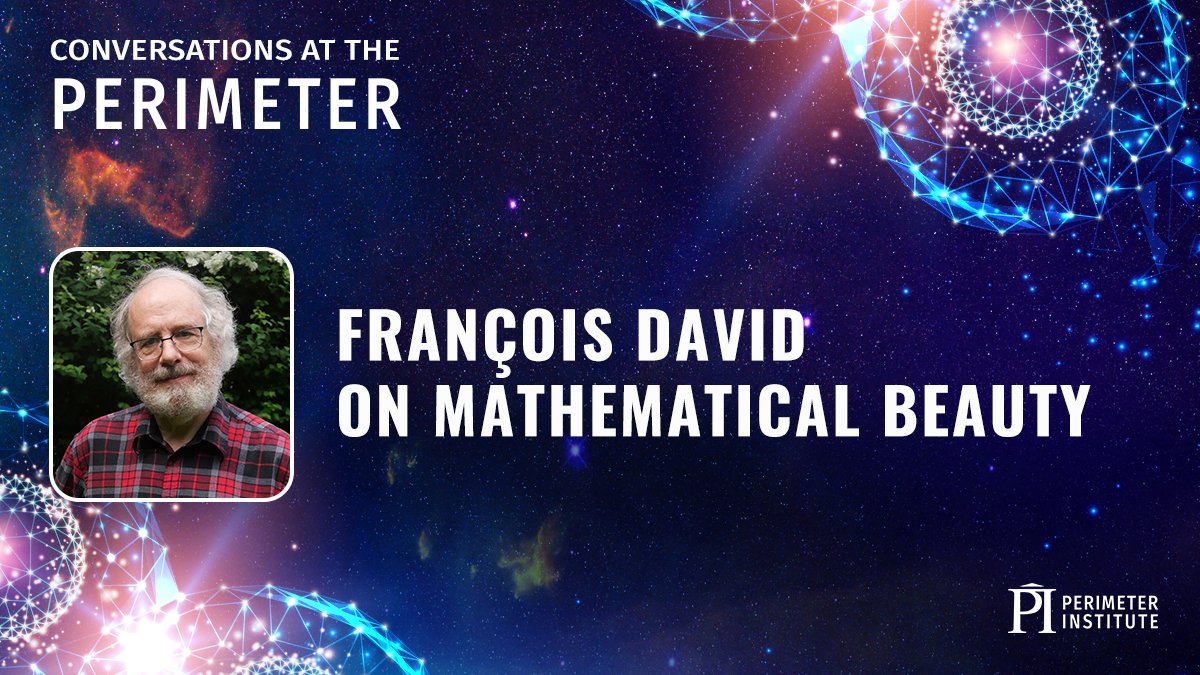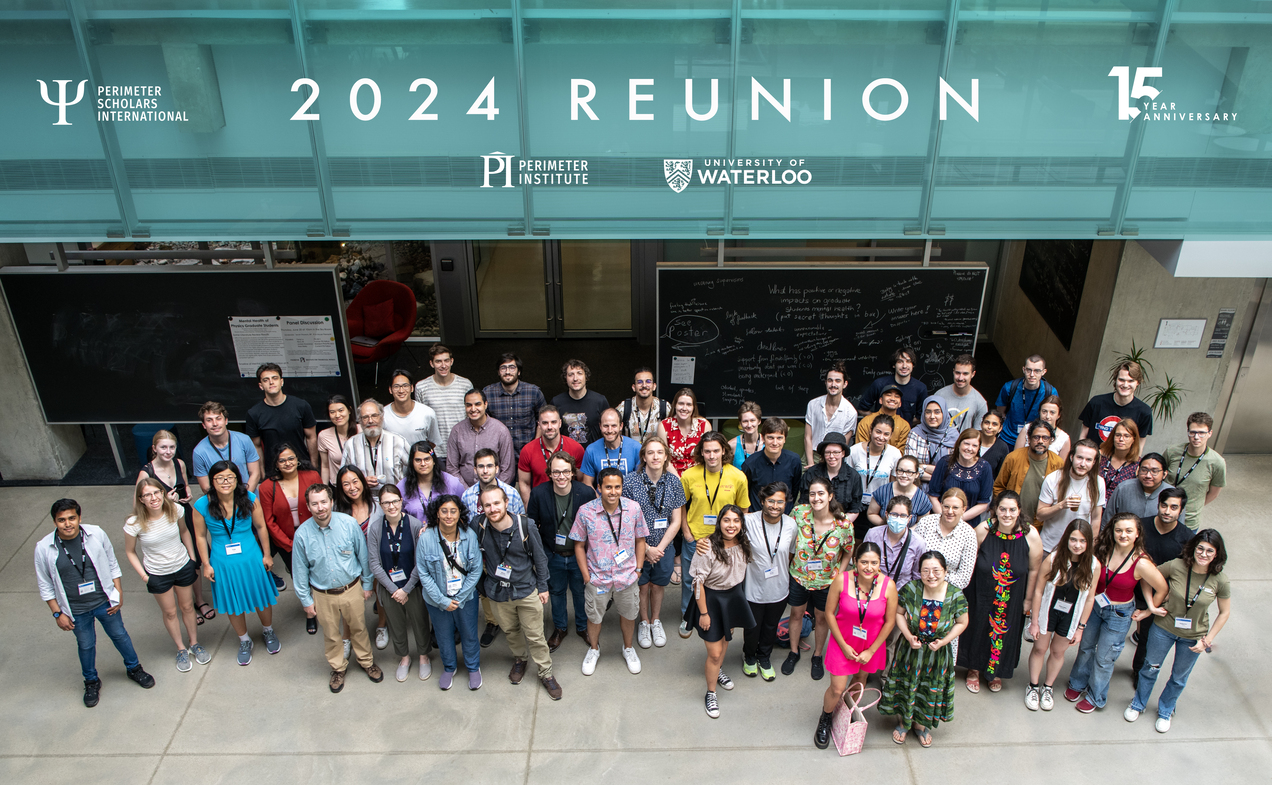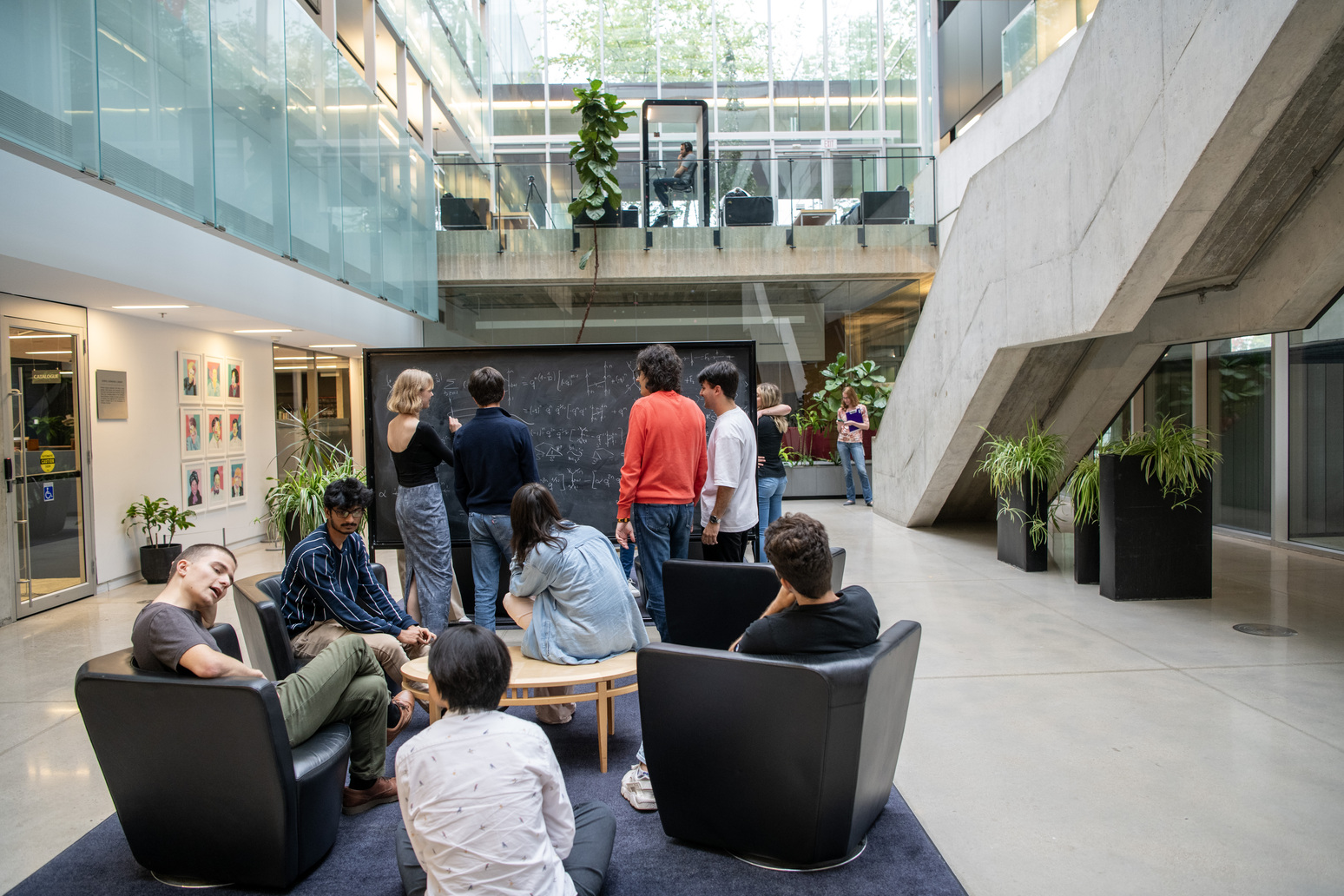Spanning both space and time, the field of theoretical physics can feel overwhelming and almost impenetrable to early-career theorists. Perimeter Scholars International (PSI), a master's program focused on theoretical physics, is hosted by Perimeter Institute in collaboration with the University of Waterloo. PSI is designed to give students a structured, comprehensive foundation in the field, with opportunities to drill down into specific areas of interest – all in just one year.
Founded in 2009, PSI has quickly established itself as a world-leading program for aspiring theorists. The program has produced over 400 graduates from 75 countries who have gone on to make significant contributions in physics and beyond.
A key to PSI’s success is its high-calibre instructors, who design and teach the program’s rigorous, far-reaching courses. Among them, Ruth Gregory and François David have been with the program since its inception in 2009, helping shape the courses that have inspired 15 cohorts of young theoretical physicists.
Learning from the experts
At PSI, students have the unique opportunity to learn directly from the creators of the theories they study. Ruth Gregory, head of the Department of Physics at King’s College London, has taught a course on gravitational physics at PSI since 2009. Gregory, who is best known for the Gregory–Laflamme instability of black strings and branes in higher dimensions, has received prestigious awards including the 2006 Maxwell Medal and the 2011 Royal Society Wolfson Merit Research Award for her contributions to the field.
Her course, “Review of Gravitational Physics,” builds on students' knowledge of general relativity, revisiting fundamental concepts while introducing more advanced topics.
"The aim is to give students a basic toolkit – the essential mathematical tools and theoretical concepts – they can use whether they go on to do astrophysics, numerical relativity, quantum gravity, or quantum information," Gregory said.
The course is divided into three parts: foundational principles, advanced topics (including extra dimensions and black hole thermodynamics), and research-driven exercises that engage students with the latest developments in gravitational research.
François David, another longtime PSI faculty member, has spent his career at the crossroads of mathematical physics, quantum field theory, and statistical mechanics. In recognition of his contributions to the field and to French research, he received the CNRS Bronze Medal in 1983, and both the Prix Ampère and the Médaille de Physique from the Académie des Sciences in 1994 and 2023, respectively. David led the Institute of Theoretical Physics of Saclay in France from 2017 until his retirement in 2021.
Now an emeritus senior researcher at CNRS, David remains active in research and teaching, recently exploring how quantum gravity could function in a hypothetical universe where time behaves normally, but there is only one dimension of space.
“It’s a kind of toy model, far from the real universe where you have three-dimensional space,” David explained. “Theoretical physicists like these toy models, because they isolate a very specific point, and those specific points can become very relevant to our own universe.”
David teaches a key PSI course on quantum field theory, "Quantum Field Theory II," which picks up where introductory courses leave off, providing students with a deeper, technical understanding of quantum fields in high-energy physics. David covers ideas developed from the 1940s to the 1970s and beyond that have shaped modern theoretical physics and the Standard Model of particle physics.
"The course is rather technical,” David said. “You have to learn many tools before you can fully understand what's going on in quantum field theory, and if a student has not learned these tools, they cannot do real high-energy physics.”
After lectures, students engage in problem-solving sessions led by experienced PSI Fellows to deepen their understanding and demonstrate mastery of the material. Instead of traditional graded assignments, students are evaluated through interviews and project work.
“It’s difficult to grade creativity and ingenuity,” David said, adding that PSI’s grading structure shifts the focus from merely "making the grade" to fully understanding and exploring the topics at hand.
Inspiring the next generation
Both Gregory and David have been with PSI since its inception in 2009. David recalls an early conversation with Neil Turok, then-director of Perimeter Institute, in which he asked Turok what he expected from him as a lecturer. “Of course, we had an exchange about the technical topics I should cover, but his main charge to me was: inspire the students,” David said. “It was very good advice – not very precise, as is his style – but good advice.”
The courses clearly inspire students, as evidenced by a recent graduate reunion celebrating PSI's 15th anniversary in July 2024. The event showcased the diverse careers pursued by alumni, including academic and applied research, as well as industry-focused careers in data science, AI, experimental physics, and quantum computing.
Gregory, aware that some students may transition to industry, tries to demonstrate how these mathematical tools can apply to areas beyond theory. “There are so many ways you can find fulfillment in life,” Gregory said. “Research and problem-solving are not limited to academia. I believe there should be a continuum, from academic exploration to designing real-world solutions. Students who move to industry carry their curiosity, inventiveness, and problem-solving skills with them, taking them all over the world. It would be wrong to keep that to ourselves.”
A close-knit learning environment
A hallmark of Perimeter Institute programs is the close-knit environment where research, study, and life are deeply interconnected. PSI students live and study together in small cohorts, fostering collaboration and strong relationships with peers and faculty.
For Gregory, this involvement often leads to discussions about students' futures, theory, and even collaborative publications. A few years ago, during a PSI “winter school” retreat at Camp Kintail, Ontario, a walk along Lake Huron sparked an impromptu conversation with a student that resulted in a breakthrough in black hole chemistry.
“We were talking about expressions in black hole thermodynamics, and the calculation just slotted into place,” Gregory recalled. “We did the main part of the calculation that evening. You don’t often get those moments, but when it happens, it’s certainly nice.”
The PSI program is distinguished not only by its access to world-class scientists with unparalleled expertise, but also by the instructors’ deep commitment to fostering the next generation of thinkers and researchers.
“It’s really rewarding to teach these cohorts of young people, and I’ve met a surprising number of them again and again as they progress in their careers,” Gregory said. “Teaching and mentoring has been a large part of my career; it’s a joy and a very satisfying part of an academic role.”
“It was a great experience to be offered this opportunity to teach and to come back year after year,” David said. “Teaching at PSI is one of the highlights of my life as a scientist.”
Learn more about the PSI program here.
À propos de l’IP
L'Institut Périmètre est le plus grand centre de recherche en physique théorique au monde. Fondé en 1999, cet institut indépendant vise à favoriser les percées dans la compréhension fondamentale de notre univers, des plus infimes particules au cosmos tout entier. Les recherches effectuées à l’Institut Périmètre reposent sur l'idée que la science fondamentale fait progresser le savoir humain et catalyse l'innovation, et que la physique théorique d'aujourd'hui est la technologie de demain. Situé dans la région de Waterloo, cet établissement sans but lucratif met de l'avant un partenariat public-privé unique en son genre avec entre autres les gouvernements de l'Ontario et du Canada. Il facilite la recherche de pointe, forme la prochaine génération de pionniers de la science et communique le pouvoir de la physique grâce à des programmes primés d'éducation et de vulgarisation.




